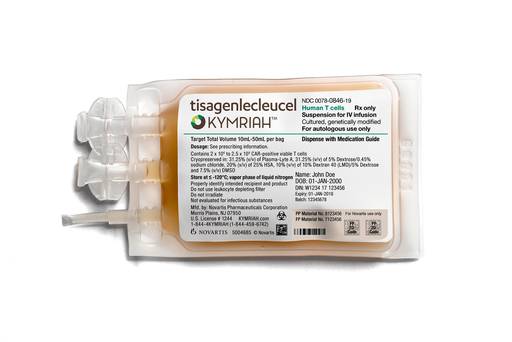Oxford BioMedica could get $100m following CAR-T approval

UK biotech Oxford BioMedica could earn more than $100 million from Novartis for providing a key component in the recently approved CAR-T cancer cell therapy.
The FDA this week approved Novartis’ chimeric antigen receptor T-cell (CAR-T) therapy Kymriah (tisagenlecleucel), formerly known as CTL019, in relapsed or refractory B-cell acute lymphoblastic lymphoma in children and young adults.
CAR-T therapies have been referred to as “living drugs”, where the patient’s own T-cells are harvested and then genetically modified to fight cancer.
Oxford BioMedica is the sole manufacturer of the lentiviral vectors used to modify the patients’ T-cells to create the therapy, following an agreement signed in July.
The agreement also covers other undisclosed CAR-T projects, and Oxford BioMedica said payments could exceed $100m from Novartis over the next three years.
Following an earlier agreement around three years ago, Oxford BioMedica will also receive undisclosed royalties on potential future sales of Novartis CAR-T products.
[caption id="attachment_31293" align="alignnone" width="225"] John Dawson[/caption]
John Dawson[/caption]
John Dawson, Oxford BioMedica’s CEO, said: “We are delighted that the FDA has now approved CTL019. This innovative immunocellular therapy will offer critically ill patients with an aggressive disease a new treatment option.”
“Oxford BioMedica will supply the lentiviral vector encoding CTL019 and we look forward to continuing our collaboration with Novartis, both for commercial supply of CTL019, as well as bioprocessing and manufacturing for the clinical development of their other CAR-T products.”
The vectors used by Oxford BioMedica include cellular machinery from HIV viruses, and the firm has introduced a host of safety features to prevent the therapy inadvertently creating viruses capable of replication.
At a meeting of FDA clinical experts before approval, this theoretical safety issue was discussed, but representatives of the UK biotech said there was no evidence of the problem in clinical trials so far.
Safety features to prevent replication include spreading genetic material over small snippets of DNA known as plasmids.












